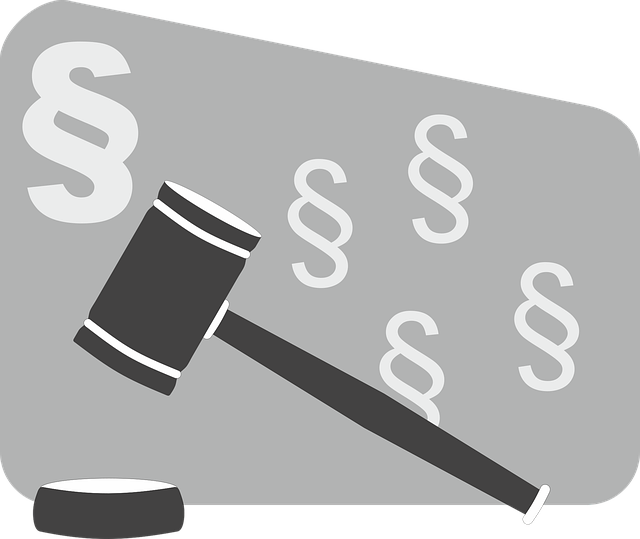Regulatory non-compliance is a significant issue in administrative law, leading to severe legal consequences for businesses, philanthropy, and politics. Common problems arise from misunderstandings or intentional ignoring of regulations, resulting in procedural errors and deliberate protocol disregard. Penalties include hefty fines, license revocations, lawsuits, and even indictments. To navigate this complex landscape, companies must stay ahead of legislative changes, monitor regulatory updates nationwide, and prepare for jury trials, fostering a culture of compliance that enhances their ability to defend against legal issues effectively. Understanding and adhering to regulations, especially those protecting public health and ecosystems, is crucial in addressing common administrative law cases.
In the intricate landscape of administrative law, regulatory compliance is a cornerstone that separates success from legal pitfalls. This article delves into the fundamental aspect of understanding and adhering to regulations, exploring common issues in administrative law cases. From identifying violations that can significantly impact outcomes to providing strategic guidance for achieving compliance, we navigate the legal complexities. Through insightful case studies, real-world examples illuminate crucial lessons, offering a comprehensive resource for practitioners navigating these challenges.
- Understanding Regulatory Compliance: A Cornerstone of Administrative Law
- Common Pitfalls: Violations and Their Impact on Cases
- Navigating the Legal Landscape: Strategies for Compliance Success
- Case Studies: Lessons from Real-World Regulatory Compliance Issues
Understanding Regulatory Compliance: A Cornerstone of Administrative Law
Regulatory compliance is a fundamental aspect of administrative law, serving as a cornerstone for maintaining order and fairness within various sectors. At its core, it involves adhering to rules and guidelines set by governing bodies to ensure businesses and organizations operate ethically and responsibly. These regulations span diverse areas, from environmental protection and health safety to financial reporting and data privacy. Non-compliance can lead to severe legal consequences, including hefty fines, lawsuits, and reputational damage.
In the context of administrative law cases, common issues often arise from misunderstandings or intentional ignoring of these regulations. For instance, white-collar and economic crimes, such as fraud, money laundering, and tax evasion, frequently involve complex regulatory landscapes. Navigating all stages of the investigative and enforcement process requires meticulous attention to detail and a comprehensive understanding of the applicable laws. Additionally, compliance challenges can impact not just businesses but also philanthropic and political communities, emphasizing the need for transparent practices and ethical conduct across sectors.
Common Pitfalls: Violations and Their Impact on Cases
In administrative law cases, common issues often stem from regulatory violations that can significantly impact the outcome. One of the most frequent pitfalls is non-compliance with specific rules and guidelines set by governing bodies. These violations can range from procedural errors to deliberate disregard for established protocols, leading to severe consequences. For instance, a business might face hefty fines, license revocations, or even legal actions like lawsuits or indictments.
Moreover, the impact extends beyond monetary penalties; it affects the reputation of businesses and organizations, especially in the philanthropic and political communities, where transparency and adherence to laws are paramount. Across the country, cases with clear violations often result in swift and severe punishments, serving as a cautionary tale for others. Avoiding indictment requires meticulous attention to detail and a deep understanding of the regulatory landscape, ensuring that every action aligns with legal expectations.
Navigating the Legal Landscape: Strategies for Compliance Success
Navigating the complex legal landscape is a significant challenge for businesses, especially when dealing with regulatory compliance issues in administrative law cases. These cases often involve intricate rules and regulations, leaving companies vulnerable to common pitfalls that can lead to costly consequences. Understanding the nuances of administrative law is crucial to ensuring success and avoiding legal traps.
One key strategy is staying ahead of legislative changes and keeping an unprecedented track record of monitoring regulatory updates across the country. By doing so, businesses can proactively adapt their practices and policies, minimizing the risk of non-compliance. Additionally, understanding the potential impact of administrative actions and being prepared for jury trials can significantly enhance a company’s ability to defend its position effectively. This proactive approach allows organizations to foster a culture of compliance, ensuring they remain resilient in an ever-changing legal environment.
Case Studies: Lessons from Real-World Regulatory Compliance Issues
Regulatory compliance issues are a common feature in administrative law cases, with businesses and individuals often grappling with complex rules and guidelines. Case studies from real-world scenarios offer valuable insights into how such challenges manifest and provide lessons for navigating similar situations. For instance, consider a recent case where a prominent manufacturing company faced charges of environmental violation due to improper disposal of hazardous waste. This issue underscores the importance of understanding and adhering to strict environmental regulations, which are designed to protect public health and preserve ecosystems.
The outcome of this case not only highlighted the potential consequences of non-compliance but also showcased the significance of proactive measures in achieving extraordinary results. The company’s general criminal defense strategy focused on demonstrating due diligence and implementation of robust internal controls, ultimately leading to a favorable settlement. This serves as a reminder that, beyond addressing immediate legal issues, focusing on preventative measures can be instrumental in avoiding future regulatory compliance problems.
Regulatory compliance is not just a legal requirement but also a strategic imperative for businesses and organizations. By understanding common issues in administrative law cases, such as violations and their impacts, and adopting effective strategies, entities can navigate the complex legal landscape with greater success. As seen in various case studies, proactive compliance measures and a deep grasp of regulatory frameworks can mitigate risks and foster positive outcomes. Staying informed and adapting to changing regulations are key to ensuring long-term sustainability and avoiding potential pitfalls in administrative law matters.






